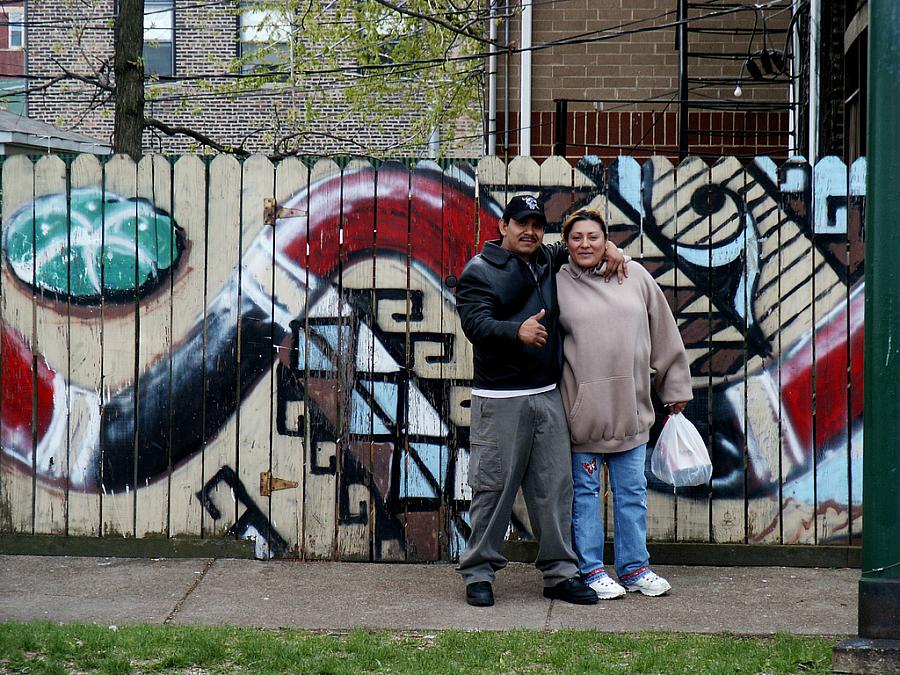Reporting on the Community Health Challenges Facing Latinos in the Midwest

I will be working on a project that looks at the community health challenges facing predominantly Latino communities in Chicago and the Midwest. Specifically, we plan to look at issues of health care access, the efficacy of federal enforcement systems in protecting Latino workers and families, and how Latino communities are dealing with the positive and negative emotional dimensions of migration. Although distinct in focus, each of these stories adopts a community-wide perspective in examining a critical physical and mental health aspect of these often underserved communities.
It's a major undertaking, and I'm very grateful to have the support of this community as I design, report and carry out the project.
We have actively begun acquiring the necessary data and identifying the communities we would like to cover. We have not chosen the specific places outside of Chicago because we have not yet received the enforcement data. But we do know that we want to look at the Pilsen and Little Village neighborhoods in Chicago, which has the nation's second-largest Latino community, and at smaller towns in the Midwest like Ames and Postville, Iowa communities that have seen a dramatic increase in their Latino populations during the past decade.
It is also important to note that, while we will focus on the three in-depth stories we identify below, we will be publishing video clips, stories, documents, data findings, and maps throughout the entire period we undertake the project. These products and others will be published on our web site and distributed through social media so as elicit maximum audience engagement. We will also be publishing in our print edition throughout the project, and plan to create a special color section that will collect much of the work, including the three main stories proposed. I will be the primary person involved in the project, and will also have access to other members of the Hoy team as this is a consistent feature of Fernando Diaz's leadership.
The Challenges of Access will look at the obstacles to accessing health care in predominantly Latino communities. This story will focus on the Pilsen, Little Village and Back of the Yards neighborhoods in Chicago. In 2009, just 22 percent of residents in these communities received their insurance through a current or former employer or a union-the lowest figure by far in the state and the sixth-lowest total in the country, according to our analysis of Census data. While the landmark health care reform law will change people's insurance status, substantial difficulties remain to community members' accessing the health care they need. This story will explore some of these linguistic, cultural and financial barriers and point out examples of promising practices, too.
Enforcement? For this story I will travel to Midwestern communities that have seen a significant surge in their Latino populations during the past decade to identify how well the federal enforcement apparatus-agencies like OSHA, the FDA, the USDA and the EPA-is protecting the health of the workers, their families and other community members. While much attention has been given to the consequences of enforcement for the workers, far less has been paid to their families and communities. This story will combine the analysis of census, jobs and enforcement data with on-the-ground reporting to fill that coverage gap.
The mental health of migration will look closely at how Latino communities in Chicago and the Midwest are dealing with the gains and setbacks they experience through their decision to leave their homes, travel north to the United States and resettle in the United States. As with the enforcement story, much of the previous reporting on this issue has concentrated primarily on an individual or family-level. I will draw on sources like Dr. Richard Mollica, a Harvard professor and founder of the Harvard Program in Refugee Trauma. Mollica has worked for 30 years with members of Massachusetts' Cambodian community to understand how they process trauma on a group level. I will adopt a similar approach with Latino communities. The story will include a frank look at the difficulties many in the community experience and the resources they bring to bear on those challenges.
Photo credit: Señor Codo via Flickr

